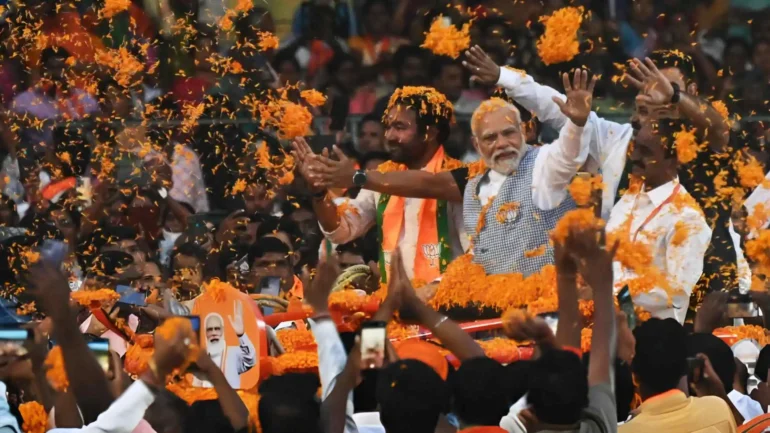In the Varanasi Lok Sabha constituency, Prime Minister Narendra Modi wins from Varanasi defeating Congress candidate Ajay Rai, winning by a substantial majority of more than 1.5 lakh votes. Modi has now won the seat three times in a row, securing his place as the leading figure in Indian politics.
There are eighty parliamentary constituencies in the state of Uttar Pradesh, including the Varanasi Lok Sabha constituency. It is classified as General and covers the Assembly segments of Rohaniya, Varanasi North, Varanasi South, Varanasi Cantonment, and Sevapuri. It also contains a portion of the Varanasi district. Varanasi, one of the world’s oldest continuously inhabited cities, adds to the constituency’s high historical and cultural value.
The fact that Narendra Modi won in Varanasi is evidence of both his ongoing appeal and the BJP’s robust local network. Since 2014, the Prime Minister has served as an MP from Varanasi, having defeated AAP leader Arvind Kejriwal by a wide margin of more than 4 lakh votes. With an astounding 63% of the vote in 2019, Modi defeated Samajwadi Party challenger Shalini Yadav to reclaim the seat.
This year, UP Congress Chief and Congress candidate Ajay Rai presented a formidable challenge to Narendra Modi. Modi’s popularity and the grassroots support of the BJP assured his victory even in the face of opposition. With 612,970 votes, the Prime Minister won, and Rai came in second with 460,457 votes.
Ather Jamal Lari, a candidate for the Bahujan Samaj Party, received 217,311 votes to place third. The BSP’s dismal performance in the constituency was indicative of the party’s waning clout in the area and was a considerable drop from prior performances.
The election results in Varanasi mirror broader political tendencies in Uttar Pradesh. The BJP has been the dominant force in the state, and Modi’s triumph in Varanasi demonstrates his ability to connect with citizens and rally support for the party.
The Prime Minister’s victory in Varanasi is also noteworthy, considering the constituency’s historical and cultural importance. Varanasi is a city rich in history and spirituality, and Modi’s victory demonstrates his ability to reach out to people across regional and religious lines.
The Varanasi election results signify a watershed moment in Modi’s political career, as he wins the seat for the third time in succession. The Prime Minister’s lasting popularity, along with the BJP’s strong organizational network, assured his win and cemented his position as the dominant force in Indian politics.
Prime Minister Narendra Modi wins from Varanasi by more than 1.5 lakh votes marks a watershed moment in his political career, reflecting his ongoing popularity and the BJP’s strong organizational network in the region. The Varanasi election results demonstrate Narendra Modi’s ability to connect with voters and rally support for his party, cementing his position as the dominating force in Indian politics.

